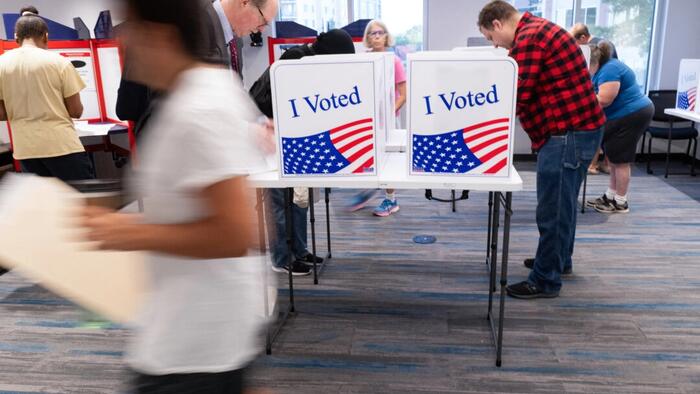On October 11, 2023, the Department of Justice (DOJ) initiated legal action against Virginia, accusing the state of contravening federal law by removing potential noncitizen voters from the electoral rolls in close proximity to the upcoming general election. The DOJ’s court filing pointed to a specific violation of the “Quiet Period Provision” under the National Voter Registration Act, which mandates that voter removal programs should be finalized no later than 90 days preceding an election. Assistant Attorney General Kristen Clarke emphasized the intent behind this regulation, stating that it was designed to prevent hasty and error-prone efforts that could potentially disenfranchise eligible voters. The lawsuit also named the Virginia Board of Elections and its Commissioner, Susan Beals, as defendants in this matter.
The DOJ’s complaint highlighted an executive order signed in August by Virginia Governor Glenn Youngkin, which called for daily updates to the state’s voter lists, particularly focusing on identifying noncitizens. This process involved cross-referencing individuals flagged by the State Department of Motor Vehicles against the existing voting registries. According to the DOJ, local registrars were mandated to inform flagged voters that they must confirm their citizenship within a 14-day window or face removal from the voter rolls. Alarmingly, the DOJ reported that this method has resulted in the cancellation of registrations for U.S. citizens, accounting for the removal of 6,303 individuals from the rolls between January 2022 and July 2024.
The lawsuit contended that the local registrars lacked any discretionary power to delay voter cancellations, even in situations where they had substantial grounds to believe the voters were indeed citizens. The DOJ firmly asserted that this systematic removal of voters conducted within the 90-day window leading up to a federal election was a direct violation of the Quiet Period Provision. This vigorous enforcement of voter roll maintenance raised concerns about the impact on eligible voters, potentially disenfranchising a significant number of citizens during a crucial electoral period.
Governor Youngkin pushed back against the DOJ’s action, characterizing it as politically driven and unprecedented just weeks before an important election. He expressed that the filing was an attempt to undermine the legitimacy of elections in Virginia, portraying it as a desperate measure. Youngkin asserted that his administration’s actions were appropriate and compliant with existing laws, pledging to defend these initiatives vigorously with the support of the state Attorney General. His commentary framed the lawsuit within a broader narrative of defending democratic integrity against perceived federal overreach.
This legal confrontation with Virginia wasn’t an isolated incident for the DOJ. Just weeks earlier, a similar lawsuit had been filed against Alabama and its Secretary of State regarding a voter roll purging initiative initiated only 84 days before the November 5 general election. The DOJ’s actions against both states illustrate a pattern of intervention aimed at safeguarding voting rights and ensuring that elections are conducted fairly, particularly in the face of initiatives perceived as infringing upon those rights.
As the situation unfolds, the underlying struggle between state-level voter management efforts and federal oversight underscores a pivotal moment in American electoral politics. The outcomes of these lawsuits not only have immediate implications for the states involved but also set precedents for how voter registration processes are regulated nationwide. This legal clash reflects larger themes of federalism, voter protection, and the ongoing debate over the appropriate methods of maintaining voter integrity without disenfranchising eligible voters, all key issues as the nation approaches a critical election cycle.

